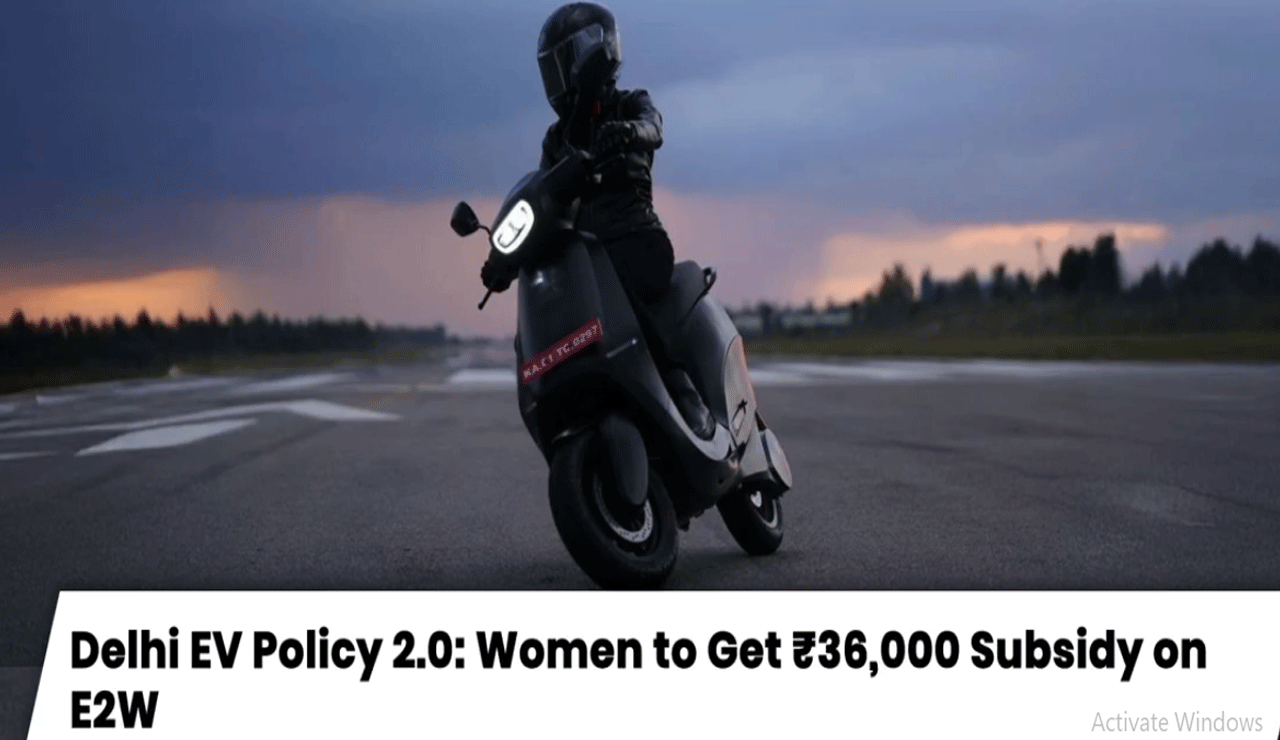Women to Get Scooters Cheaper by Up to ₹36,000 as Delhi Govt Set to Launch New EV Policy Today
The Delhi government is preparing to launch its new Electric Vehicle (EV) Policy 2.0, with a strong focus on promoting e-mobility among women.

The Delhi government is preparing to launch its new Electric Vehicle (EV) Policy 2.0, with a strong focus on promoting e-mobility among women.
As per the draft policy, the first 10,000 women with a valid driving license will be eligible for a subsidy of up to ₹36,000 on the purchase of electric two-wheelers.
Table of Contents
To encourage women’s participation in the EV transition, the government plans to offer ₹12,000 per kilowatt-hour (kWh), capped at ₹36,000 per vehicle.
EV Policy 2.0 to Complement PM e-Drive Scheme
The policy is designed to complement the central government’s PM e-Drive scheme and aims to accelerate EV adoption across Delhi. Valid until March 31, 2030, the new policy includes incentives not only for electric two-wheelers but also for electric three-wheelers and commercial EVs.
For general electric two-wheeler buyers, the government may offer a subsidy of ₹10,000 per kWh, with a maximum of ₹30,000 per vehicle.
Additional ₹10,000 Subsidy for Vehicle Scrapping
A further ₹10,000 subsidy will be provided to registered owners who scrap their old fossil fuel-powered two-wheelers, provided the vehicle is not more than 12 years old.
Incentives for L5M category electric auto-rickshaws are also part of the plan. These e-autos, meant to replace existing CNG ones, may get a purchase subsidy of up to ₹45,000 (₹10,000 per kWh). Additionally, owners scrapping ICE autos less than 12 years old may receive a ₹20,000 scrapping incentive.
Mandatory Transition from CNG to Electric Autos
Under the policy, CNG auto-rickshaws completing 10 years of registration during the policy period may be mandated to switch to e-autos. In such cases, the government proposes a replacement subsidy of ₹1,00,000 per vehicle. However, beneficiaries of this subsidy will not be eligible for other incentives under the scheme.
Commercial EV Cargo Vehicles to Get Subsidies Too
The EV Policy 2.0 also targets the commercial sector. Electric three-wheeler cargo vehicles (L5N) may receive up to ₹45,000, while four-wheeler cargo vehicles (N1 category) can get subsidies up to ₹75,000. These benefits will be available to both individual and commercial applicants, and will remain valid for the first three years of the policy’s implementation.
